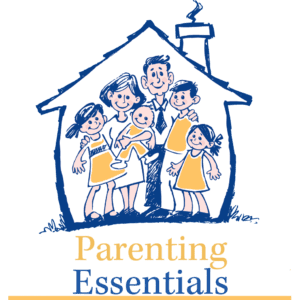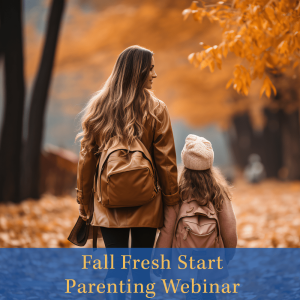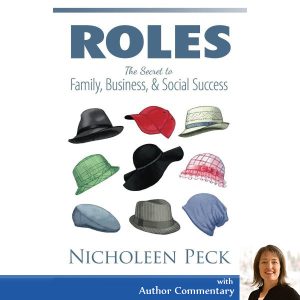Dealing With Difficult Family Members?
The Question:
“Nicholeen, I have been working really hard at having self-government with my spouse and children, but I don't see how to have self-government with people in my extended family who are extremely difficult. Also, I am not their mother. How do you deal with difficult family members? What do you suggest?”
Answer:
Good question. Communication in families is difficult. No family is perfect. No person is perfect. There will always be people we are related to who are harder to get along with than others. This is one of the great struggles of life.
I wish I could tell you that I have perfectly handled all my communications with my family members. I have not. However, I do learn from my mistakes. This is the only positive side to the many mistakes I have made in extended family relationships over the years. I don't usually say or do the same dumb thing twice. Getting along with family takes practice and patience.
Even though I have spent many many years studying communications, relationships and self-government, I still mess up sometimes. We are all a work in progress.
To answer this question I would like to tell you some of the things I have learned in my failings, from observations of other people's relationships, and in my study of relationship principles.
Life Is About Relationships
Have you ever taken time to think about why you are here on this earth? I have. Have you ever pondered why God put you in a family with people to love and care for you? I have. Have you ever wondered why most all religions pray? I have.
We are here to master relationships. We started this life because of a relationship, and came into this life to relationships. People who do not have meaningful relationships from the beginning of life have been proven to have social, emotional and physical problems in life.
Also, we pray to God to establish and strengthen a relationship with him.
Our relationships bring us our greatest joys and our deepest sorrows. We spend the majority of our lives looking for and serving in relationships. We aren't happy people if we are alone. We weren't meant to be alone.
If you look a bit closer at life and relationships, you will also see that everything we do has something to do with a relationship. We are either strengthening or weakening a relationship with every choice we make.
It is my belief that we are here on this earth to establish relationships and learn through them. As we draw closer to people and serve people, then we can understand what it means to serve God. Relationships teach us everything which is vital to our happiness. People who try to find happiness without meaningful relationships are always disappointed. Happiness and relationships are tied together.
The Opposite Of Love
Most of us spend our whole lives trying to perfect relationships. This is what we do and care about most. This is a good thing.
When we care deeply enough for another person to try to perfect a relationship with them it is called love. Love is a feeling we all crave. We want to feel someone have it toward us and we want to feel the elated feeling of love toward another. Subconsciously we know that when we express love and feel loved we are happy.
When someone we love wrongs us or makes life difficult for us, we often start to feel hatred toward them. We become offended and often frustrated. People behave in different ways when this happens. Some can't talk to the offender, some become very vocal and angry. These are both still signs of love. Only when we really love a person would we care enough to feel offended or angry. If we don't love the person, we would most likely feel indifferent. Indifference is the opposite of love. To put it more simply. Indifference is a sign of selfishness. Caring only about yourself is the opposite of wanting a relationship.
What to do:
This is where I get to tell you what I have learned the hard way. I hope you can learn from my mistakes so that you don't need to feel the pain of making them yourself. Trust me, life feels much better when you consciously choose to take control of yourself and your relationships.
Don't take it personal
It's really easy to allow yourself to become offended. This is the first step toward unhappiness. If you choose to become offended, then you choose to care too much about your own feelings and not to have compassion and understanding of another person's feelings. In short, you begin to be selfish. In a relationship, you are supposed to care about the other person's feelings. So, don't take it personal.
One day a good friend of mine came to me and told me that she was frustrated by something I did. I didn't ever intend to hurt her, so what did I do? You guessed it, I lost my temper, and sent some relationship killing darts out of my mouth at her. I think I even told her to mind her own business. The moment I was done talking to her I knew I had messed up my happiness and her's. I knew that I had become selfish and emotional. I needed to get calm and fix the situation.
I loved this friend. But, in that first minute, I chose not to understand and to love myself more. It was time to forgive her and ask for forgiveness from her. About fifteen minutes after talking to my good friend, I called her and told her how sorry I was for the way I communicated to her. I tried to just make a sincere apology and not justify anything I had done.
People who justify when apologizing haven't really had a change of heart yet. They are trying though, so try to love them even though the apology sounds like another excuse to argue.
Forgive
Apologize
Be the first one to say you are sorry. Don't talk about what they did. Only talk about what you did wrong and how sorry you are. Then stop talking. Don't keep going, or you will re-hash too many painful feelings.
Even if you were wronged, you usually still have feelings, or judgments to apologize for.
Don't Justify
Value them
Once you can recognize that the other person has a value then you can love them again, even if they have wronged you. All people are valuable. No matter how many mistakes the person makes, or how many things they still have to learn they are still valuable. God loves all of us. He values us and knows of our potential. So, if he feels this way about us, then the least we can do is feel the same way about each other.
When I chose to value all people I found a freedom I didn't know was possible. I also found that I didn't have a need for gossip and didn't like it if I found myself pulled into a gossip type situation.
When I value people, I can “seek to understand, then to be understood.”
I don't think it's possible to not take things personally unless you acknowledge that the offender is a work in progress and that their value is more important than their error.
Love Them With Their Differences
Once you notice a person's value you can appreciate some of their differences. Differences are not bad. In fact, they usually keep us all improving. So, even if you don't agree, be grateful that someone else is different than you, so that you can understand another perspective. Passion is good. Don't try to change them, or take their passion away. Change must happen within a person; and it takes time. We should all heed the counsel of Gandhi, “Be the change you wish to see in the world.”
Your example will change the hearts of your loved ones more than preaching.
The deepest form of love is gratitude. Be grateful for your extended family members. Notice the good things they do and the ways they show love to you. Let yourself be touched by their goodness, and be grateful that you get to have a relationship with them.
I know this is easier said than done when someone has really made you mad or is being really difficult. But, just like I talk about making home a “safe place” for your children you need to make yourself a “safe person” to know. Safe people notice the good in others and let those goodness-es be more important than the mistakes or differences.
Disagree Appropriately
One of the four basic skills I believe in teaching children to prepare them for happy lives, is disagreeing appropriately. If a person has wronged you, or is being difficult you may need to disagree. The powerful way to do that is to disagree appropriately. I am not going to go into detail about how to do this here. Parenting A House United, the audio seminar and the Implementation Course all cover how to use and teach this skill.
By possessing the disagreeing appropriately skill we can confidently and assertively solve relationship problems and let our opinions be heard without damaging relationships.
The Four Basic Skills can all be used in multiple different relationships, not just the parent/child relationship.
Choose Words Carefully
Don't lecture, or try to talk until the “difficult” family member comes around to your way of thinking. This is a form of power struggling and often times even turns into intellectual bullying. If you really must say something, choose your words carefully, and make them short and too the point. Also, if you want them to encourage a change of heart, you may also want to make sure you speak with the Spirit of love, or don't talk at all.
Too many times people ruin relationships by saying emotional things in the “heat of the moment.” Control your tongue. Even being silent is better than spouting off everything that has ever bothered you about that person just because you are on a rampage. Relationships are always more important than one moment. Keep your mouth shut until you are calm.
Sarcasm and Criticism
Keep Sarcasm and Criticism to a minimum unless you know the person you are joking with or talking to can take it and likes it. Even though many relationships have sarcasm built into them, most people understand that sarcasm is a way to joke about the true feelings they really have. Most people find it really rude. Make sure you save your sarcasm for people you know like it otherwise you will become annoying to all who know you. (Unsolicited criticism always causes relationship problems in friend, or adult relationships. Parent/child relationships are structured a bit differently.)
Do Be The Center Of Attention
Give other people a chance to shine. No one enjoys being with an attention hog. And, if someone around you is seeking attention all the time, don't judge. Just set a good example and praise the good behaviors.
Additionally, you need to make sure you are okay with others having attention sometimes. There are some people who feel competitive about attention. If that is how you are, choose to be happy for your family member's moment to shine and choose happiness. When you love someone enough to be happy for them, then you are equally as happy.
Love and Love Again
Love is God's language. He sends is messages of love many times each day. We feel his love in a smile from a baby, or a kind word from a stranger. If you want to help “difficult family members” be not so difficult you must love them first. Your friendship and love will be the greatest motivation to make changes for the better. Never under-estimate the power of your example.





